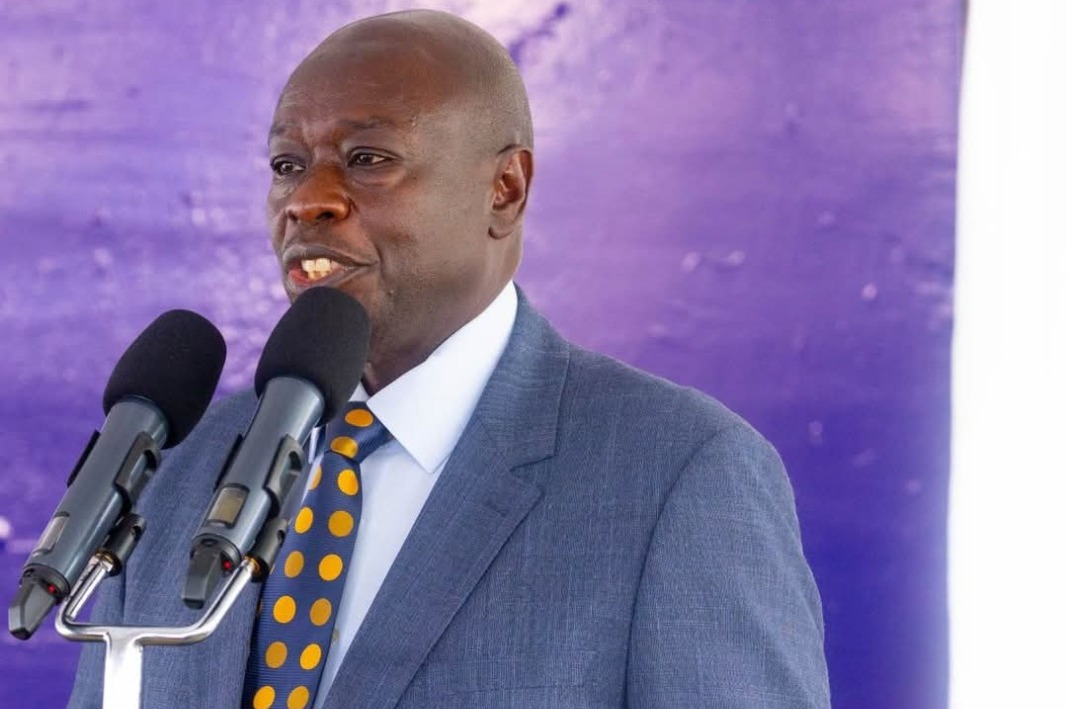
Former Deputy President Rigathi Gachagua is aggressively courting the Luhya community, signalling the significance of this key voting bloc in the 2027 elections.
Gachagua has been telling the community that it has the numbers to form the next government if it aligns with the Mt Kenya region—one of the country’s largest voter bases.
On Tuesday, the former deputy president argued that Western Kenya has, for years, failed to unite and strengthen its bargaining power, leaving the region politically vulnerable.
"It is sad that a large community like the Mulembe Nation is settling for leftovers. Why should such a populous group rely on pity and generosity when it has the numbers to lead? That does not make sense," he said.
As part of his strategy to win over the region, Gachagua has been speaking highly of some of the government’s critics from Western Kenya while positioning himself as a potential political ally ahead of the 2027 polls.
Gachagua is working with DAP-K party leader Eugene Wamalwa as part of his game plan to penetrate the region, promising a political showdown ahead of 2027.
The region had 2.6 million voters in the 2022 general election, according to the IEBC register.
On Tuesday, Gachagua praised Trans Nzoia Governor George Natembeya, Mumias East MP Peter Salasya, and former UDA Secretary General Cleophas Malala, calling them key leaders in the Western Kenya region.
"Western Kenya has great leaders. People like Salasya, Natembeya, and Malala have the vision and the mindset to help their people," Gachagua said during an interview with Luhya radio stations on Tuesday.
To appeal to the region, Gachagua exposed Kenya Kwanza’s alleged unfulfilled promises and revealing details of a political deal signed by the region’s key leaders ahead of the 2022 elections.
Gachagua's efforts come as the anticipated exit of Raila Odinga from active politics opens the region to intense political competition.
Raila is widely expected to be elected as the African Union Commission chairperson on February 15, despite facing strong opposition from Djibouti’s Foreign Minister, Mahamoud Ali Youssouf.
For decades, Raila has commanded significant political influence in Western Kenya, with the Luhya community rallying behind his presidential bids while largely sidelining its own national leaders.
With Raila now working with President William Ruto—and Mt Kenya, a crucial voting bloc that propelled Ruto to power, drifting away—the president is aggressively seeking to inherit Raila’s traditional support base.
President Ruto recently concluded a six-day development tour of Western Kenya, aiming to consolidate support for his government ahead of the 2027 elections.
During the tour, Ruto criticised Gachagua, branding him as an 'incompetent leader' dismissed for his 'divisive ethnic mobilisation tactics'.
“We have no time for tribalists and people who are incompetent and those who want to divide our nation into ethnic and personal lies. We are united as a people and Kenya is going to march forward as one united, indivisible country that we will all be proud to call home,” Ruto said in a swipe at Gachagua.
Days after Ruto’s extensive tour, Gachagua went live on Luhya radio stations, arguing that Ruto’s administration had shortchanged the region despite a pre-election agreement.
He urged the Luhya community to align with his political camp, insisting that their unity could secure them a significant role in the next government.
"It is my prayer that the Mulembe Nation joins us on the winning team because, with their support, victory will be much easier," he said.
In the Kenya Kwanza coalition agreement, Prime Cabinet Secretary Musalia Mudavadi and National Assembly Speaker Moses Wetang’ula signed a pact that guaranteed Western Kenya 30 per cent of government appointments.
However, Gachagua claimed that the region did not receive its promised share, particularly in the Cabinet.
Speaking on Tuesday, he argued that the community should have been allocated at least six or seven Cabinet positions instead of the current two.
"Mudavadi and Wetang'ula signed an agreement with the president that Western Kenya would receive 30 per cent of government appointments, including the Prime CS and Speaker positions. The agreement specified about six or seven Cabinet slots, but the region only got two," Gachagua claimed during his interview.
He made public documents showing that the deal between UDA, Ford Kenya, and ANC promised Western Kenya 30 per cent of all appointive positions, including Cabinet Secretaries, Principal Secretaries, Ambassadors, and key roles in state corporations and commissions.
According to Article 21, Clause (n) of the agreement, which was deposited with the Registrar of Political Parties, these positions were to be equally divided between ANC and Ford Kenya.
“ANC and FORD-Kenya shall have a 30 per cent share of positions in the National Government, including Cabinet Secretaries, Principal Secretaries, Ambassadors/High Commissioners/Heads of Diplomatic Missions, Chairpersons of State Corporations, Directors of State Corporations, and Commissioners of Constitutional Commissions. This 30 per cent share shall be equally divided between ANC and FORD-Kenya,” the agreement states.
As the political landscape shifts ahead of the 2027 elections, Gachagua is making a calculated push to rally the Luhya community behind him.
Meanwhile, President Ruto continues his charm offensive in the region, hoping to consolidate support and counter Gachagua’s efforts to grow his influence.
With Raila potentially leaving the stage, Western Kenya has become a battleground, with multiple political players vying to control its vast voting bloc.
The coming months will determine whether Gachagua’s overtures will gain traction or whether Ruto will successfully maintain his grip on the region.









